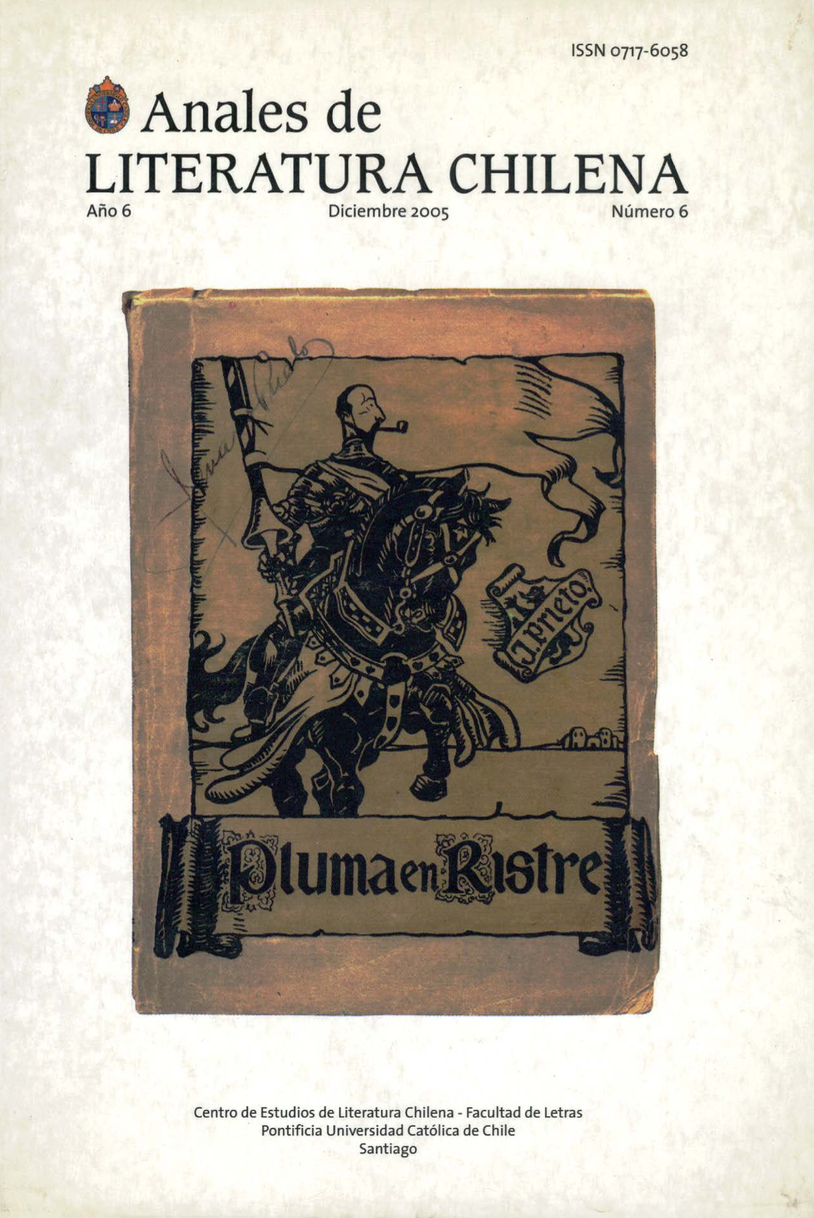Becoming "pampinos"
Keywords:
Chilean Novel, Social chronicle, Volodia Teitelboim, Hijo del salitre, Luis González Zenteno, Los pampinosAbstract
The narratives which center on the world of the nitrate mines of the north of Chile focus on the sociocultural processes which arose as a result of the exploitation of those mines. The white gold was an attraction to thousands who came from all over the world. These adventurers were not able to return to their original homes, remained in the north ofChile and became "pampinos. The novels Hijo del salitre and Los pampinos represents in the story of their protagonists this process of becoming a "pampino". This process has two stages and involves the creation of a specific identity. The first one is the painful and stoic acceptance of the harshness of the desert landscape and the strenuous work of the miner's trade. In the second one, the hero, who has experienced the first stage in all its dimensions, assumes his new condition by identifying in the fullest human sense with his new life. But becoming a "pampino" also entails a collective sacrificial sense, which sets the particular human stories under the light of the social chronicle of their tragedies.
Downloads
Downloads
Published
How to Cite
Issue
Section
License

This work is licensed under a Creative Commons Attribution-NoDerivatives 4.0 International License.


